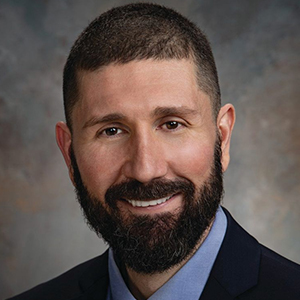NASW Member Appointed to National Academies Post

NASW member David L. Albright, PhD, MSW, a distinguished research professor at the University of Alabama and the Hill Crest Foundation endowed chair in Mental Health Research, has been appointed by the National Academies of Sciences, Engineering, and Medicine to the Committee on Progress toward Human Health and Community Resilience in the Gulf of Mexico Region, which includes Alabama, Florida, Louisiana, Mississippi, and Texas.
According to the University of Alabama School of Social Work, the committee will:
Review major efforts (past or present), common challenges, and/or key priorities in health and community resilience across the five Gulf of Mexico states
Identify major challenges or critical gaps (e.g., in research, data/information, planning, policy) that could be addressed to advance health and community resilience in the Gulf of Mexico region, including potential innovative or transformative approaches
Develop an approach that could be used to assess the progress of health and community resilience across the Gulf of Mexico region over time through future studies in this series
Consider opportunities that could lead to significant progress in enhancing or improving health and community resilience across the Gulf of Mexico region.
The school noted Albright has served on multiple National Academies of Sciences, Engineering, and Medicine study committees. He is the principal investigator of VitAL, which is a community-engaged research, implementation, and training and education initiative working to improve the health and well-being of Alabama residents.
NASW Joins Amicus Brief in Texas Abortion Ban

NASW joined 10 civil rights organizations in an amicus brief led by the Lawyers’ Committee for Civil Rights Under Law in the case Whole Women’s Health v. Jackson, filed in the U.S. Supreme Court. The case involves Texas’s Senate Bill 8 (SB 8), banning abortion after six weeks of pregnancy and allowing private citizens to enforce the law by suing anyone who performed, aided, or abetted an abortion in violation of the ban. The brief aptly describes this as “a scheme of state-sanctioned private vigilantism [designed] to prevent Texans from exercising their fundamental rights.”
Oral arguments took place Nov. 1. The sole question before the Supreme Court was whether Texas can insulate SB 8 from federal court review by replacing state enforcement with civil actions by private citizens. On Dec. 10, the majority of the U.S. Supreme Court sent a ruling that refused to block Texas’s unconstitutional abortion ban and vigilante scheme that has denied Texans their constitutional right to abortion and ended most abortion access in the state.
“The Supreme Court has ruled that federal courts are powerless to protect constitutional rights in the face of a devious state scheme that hands over state enforcement power to private citizens,” said Marc Hearron, senior counsel of the Center for Reproductive Rights, who argued the case. “The Court has effectively endorsed Texas’s efforts to subvert the U.S. Constitution.”
According to the Center for Reproductive Rights, the court, in a 5-4 decision, dismissed the most significant part of the Center’s case, ruling that the providers could not bring suit against the classes of state judges and clerks or the state attorney general. While the court allowed a narrow portion of the case to proceed in federal court against the Texas Medical Board and other licensing authorities, an injunction against those officials would not block Texas’s vigilante scheme.
This and other NASW legal briefs are available at the Amicus Brief Database.